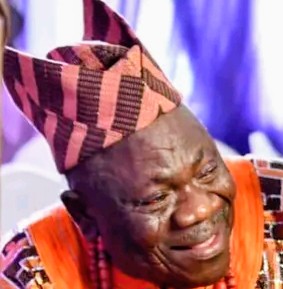The entire Ogbomoso community has been thrown into mourning following the passing of the Bale of Masifa, High Chief Gbadebo Oyebode Adeoba, a respected traditional ruler, accomplished herbalist, and custodian of Yoruba traditions.
High Chief Adeoba, who lived between 85 and 90 years, was celebrated for his wisdom, humility, and vast knowledge of Ifa divination. His death marks the close of an era for Masifa and a great loss to Ogbomoso’s traditional institution.
Having known him for many years as a close friend of my late father, I recall how our families shared a long-standing bond. Even after my father’s passing, Baba Adeoba continued to maintain that friendship with my family. His transition to the ancestral realm brings deep sadness, yet comfort lies in the Yoruba belief that such a man does not die but becomes an ancestor who continues to guide his people.
A highly skilled Babalawo (Ifa priest) and herbalist, he mastered the sacred Odu Ifa corpus and was widely regarded as a man of spiritual depth. His influence went beyond Nigeria, reaching South America, especially Brazil, where he shared his expertise and taught the principles of Ifa to devotees.
Masifa, the community he ruled, occupies a significant place in Ogbomoso’s history. It was one of about 143 towns and villages that came together in Ogbomoso during the early 19th century as part of a strategic alliance to defend against Ilorin’s invasions after the fall of Oyo-Ile, the capital of the old Oyo Empire. The Masifa people originally migrated from Ejigbo in present-day Osun State, alongside neighboring settlements like Agurodo, Isudunrin, Aye, Ola, Iwata, and Opete. While some of these towns eventually returned home after the wars, Masifa and a few others remained, rebuilding their communities while keeping their ancestral ties alive.
Years ago, I interviewed Baba Adeoba while collecting materials for “The Genesis: The History of Okeelerin,” authored by Oba S. B. Amao, the Aale of Okeelerin. When I suggested that their ancestors might have fled during the Fulani invasion, he immediately refuted it. He explained that the Ilorin war never reached Masifa, asking, “How could a war that spared Ejigbo, just a few kilometers away, suddenly reach us? Did they fly over Ejigbo to attack Masifa?”
According to him, their ancestors were invited by a notable Oyo monarch to relocate to Ogbomoso as part of a broader military plan to protect the remaining territories of the Oyo Empire after its collapse.
He also disputed the common version of the 1835 Eleduwe War, often attributed to Oluewu and his Ibaruba ally. He claimed that the real leader of that war was his ancestor, Alajiki, whose name still graces a major street in Masifa. His historical insight revealed how incomplete many recorded accounts can be when based on limited sources.
Baba Adeoba further clarified that if their forefathers had fled to Ogbomoso as refugees, they would not have settled at the frontier towns nearest Ilorin, such as Agurodo, Ajaawa, Alapa at Taraa, Ayegun, and Osupa — areas established as defensive strongholds. “These communities,” he said, “did not run from war; they stood guard to protect Ogbomoso.” His perspective aligns with Reverend N. D. Oyerinde’s account in “Iwe Itan Ogbomoso,” which highlights the defensive roles of these settlements.
Despite lacking formal Western education, High Chief Adeoba was known for his sharp intellect, boldness, and sense of justice. As a senior chief under the Soun dynasty, he displayed unwavering loyalty and humility. While others sought grand titles, he remained content with the simple but prestigious title of Bale Masifa.
During his reign, Masifa experienced significant development. He mobilized community members at home and abroad — including L. A. Gbadamosi, Justice Afolabi Adeniran, Barrister Dapo Atanda, Hajj Rasak Gbadegesin Kareem, and Hon. Wumi Ladeji — through the Masifa Progressive Union, which led several community projects.
Beyond his administrative achievements, Bale Adeoba strengthened the town’s cultural and spiritual identity through his mastery of Ifa and his efforts to uphold Yoruba heritage. He was known for his cordial relationship with other traditional rulers, his open-mindedness, and his deep commitment to unity between Masifa in Ogbomoso and their ancestral home in Osun State.
I extend my sincere condolences to Oba Ghandi Afolabi Olaoye (Orumogege III), the Soun of Ogbomoso, members of the Soun-in-Council led by High Chief Otolorin, the Aale of Okeelerin, Oba S. B. Amao, the Aresa of Iresa (Pupa), the Onpetu of Ijeru, Oba Sunday Oladapo Oyediran (Lagbami Osekun III), the Masifa Progressive Union, the Ola Aresa of Masifa, and the Adeoba Royal Family.
May the ancestors welcome this great patriarch warmly, and may his legacy of wisdom, humility, and progress continue to guide future generations.














